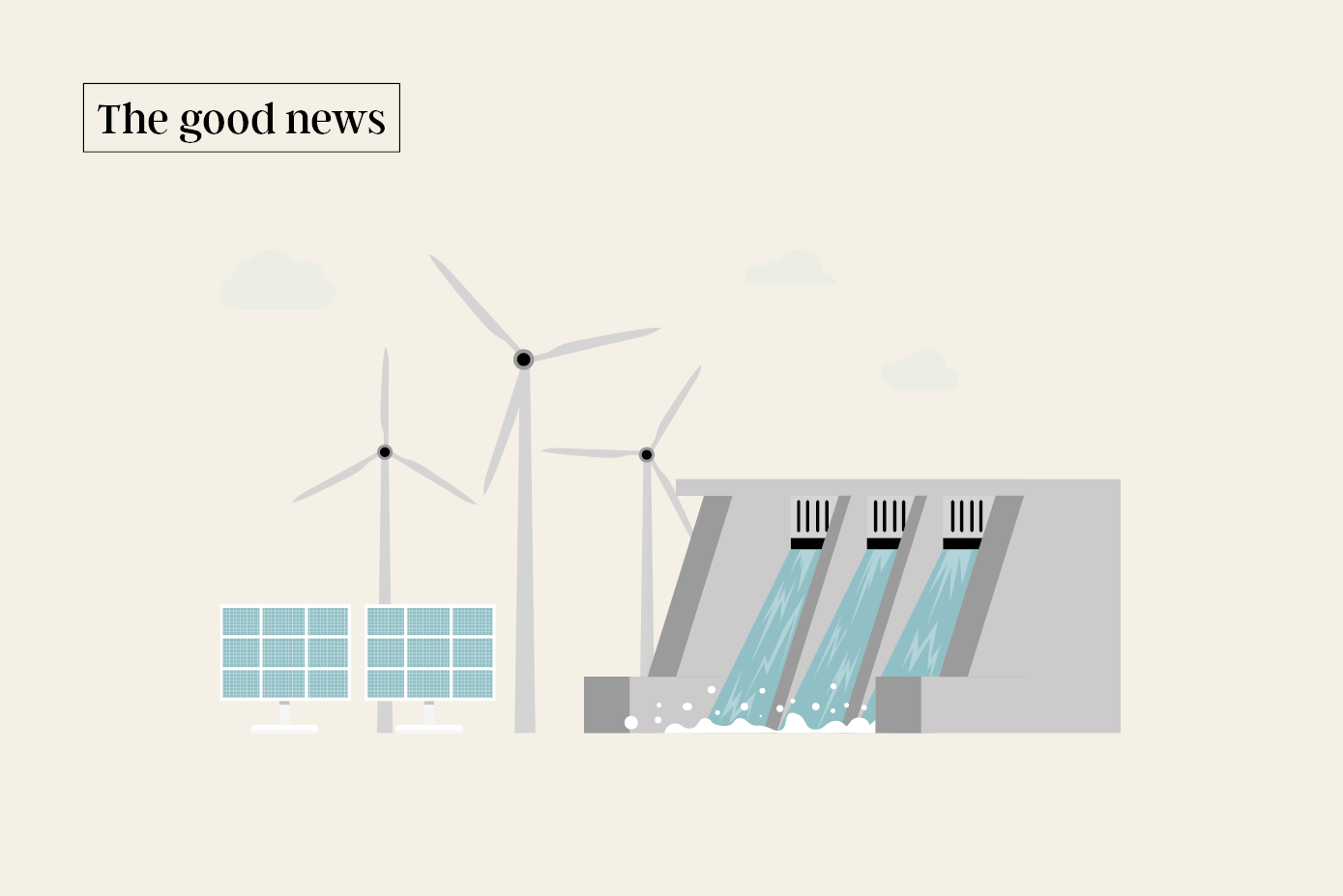Growth scepticism
Another attempt to save the planet?
By Barbara Unmüssig
The UN Conference on Environment and Development (UNCED) in Rio de Janeiro in 1992 was supposed to be a milestone in environmental policy. Nevertheless, all important global ecological problems have since only become worse. Neither governments nor industries really accept the fact that the Earth’s resources are limited and that climate change is happening fast. Nor do they challenge unabated growth as being the foremost economic objective. The race for resources of all kinds in any part of the world is increasingly leaving its mark on international affairs. The exploration and production of fossil fuels and large-scale commercial agriculture are being further expanded.
One thing, however, has changed since Rio 1992. Investments in more efficient technologies and renewable energies are increasing. This has become a multi-billion dollar industry, and emerging markets are getting heavily involved. Eco-friendly innovations, investments and products are known as the Green Economy, which is one of the topics for Rio+20, the follow-up to the 1992 conference in June this year, once more in Rio.
Rio+20 is supposed to draft a roadmap towards greener development. However, as anyone observing the preparations for the new Earth Summit will know, even the definition of Green Economy itself is a matter of controversy. Large sectors of global civil society only see it as an extremely profitable business sector which is not paying attention to issues of power and equity instead of shifting the global policy emphasis away from free trade and growth.
Among developing countries and emerging markets, the approaches to the topic diverge. Some are interested in new investments and business opportunities, others remain sceptical, fearing that the Green Economy could lead to protec-tionism, for example in disguise of environmental policy.
The Green Economy won’t do
It is interesting to see who is currently promoting what kind of idea on how to design the Green Economy. With its Green Economy Initiative, the UN Environment Programme (UNEP) published the most important proposal. A report, released in February 2011, forecasts positive effects that green investments would have on employment, resources, emissions and the environment. The message to the main addressees of the report, the governments of the Global South, is that the Green Economy is viable.
The OECD (Organisation for Economic Development and Cooperation) presented a strategy called “Towards green growth” last May. Its target group was the industrial nations. The document called for new drivers of growth in order to reduce the depletion of natural capital. The impetus is to make production more efficient by promoting innovations and to stimulate demand for eco-friendly products. The OECD points out that such investments boost growth.
The good news is that both documents accept the realities of climate change and dwindling resources. Both demand immediate action and emphasise carbon-free business and resource efficiency in general. In view of strapped public budgets, the private sector would have to drive change, so they call for designing policy environments in ways that favour eco-friendly business.
The snag, however, is that neither UNEP nor the OECD fundamentally challenge the growth paradigm. Nor do they say what form of growth might be necessary to achieve the dual objectives of sparing resources and reducing poverty. They hardly mention social issues including the rights to food, water, education or access to land.
In this perspective, the Green Economy is only about business parameters like efficiency and productivity. The ideas are not put into a context of social and environmental norms, laws and standards. The issues of power and distributive justice are not addressed. The transformation humankind urgently needs, however, will only happen with strong political will. Priorities must be decarbonisation, reduction of resource-intense consumption as well as the rejection of high-risk technologies such as nuclear power and genetical engineering.
Sustainable agriculture
What should the future of agriculture be? Today, large-scale commercial farms account for about 12 % of global greenhouse gas emissions. When all emissions that relate to changes of land use are factored in, the share rises to 32 %. Agriculture is thus an important cause of biodiversity loss and over-consumption of water resources. It is a reason for the acidification of waters and the logging of forests. Moreover, huge areas of farm land are deteriorating because they are not used in a sustainable way. According to the German Advisory Council on Global Change (WBGU), degradation affects about one third of the world’s arable land today.
At the same time, the global demand for crops and animal products is steadily rising because the world’s middle class is growing. Accordingly, consumer habits are changing, especially in regard to food. By 2050, 9 billion people will have to be fed in spite of climate change and fast depleting resources.
Agriculture, for good reason, will be high on the Rio+20 agenda. It would be welcome if the conference managed to make the global shift to environmentally sustainable farming to prevent resource depletion and damage to the environment. There is not only scope for reducing agricultural emissions, moreover. This sector could even offset some of its own emissions through sustainable land use. If, in addition, gender-specific and other social issues are tackled, agriculture could also contribute to reducing poverty.
In order to strengthen small farmers, any meaningful strategy will have to tackle the issues of access to land, water, seeds, extension services, credit and marketing opportunities. It is becoming evident that the growth of agriculture is constrained by the finite resources of water and arable land. The debate on the Green Economy must look beyond technology in this particular sector. Questions arise concerning the equitable distribution of resources, elite interests and multinational corporations. Power relations must change, and institutional and social innovations must serve distributive justice in this sector. A fundamental re-think of trade and investment policy is inevitable.
It would thus be a real step forward towards a truly global Green Economy if governments agreed on several principles at Rio+20:
Do no harm:
– All damaging farm subsidies must be eliminated, including subsidies for exports, fuel, fertilisers and intensive livestock production.
– Countries have an obligation to protect human rights, and not only within their own national borders. They must not put at risk human rights in other countries either. Trade agreements must be reviewed with this in mind. The WTO’s Agreement on Agriculture and many bilateral trade agreements still fall short of this requirement.
– Governments must protect ecologically and socially important farming sectors.
– Private and public investments in agriculture must take into account human rights and sustainability. Investments and land leases should be subject to transparent rules, and all groups concerned must be empowered to participate in decision making.
– Speculation in agricultural commodities must be controlled.
– Guidelines must be defined for a just and sustainable agricultural policy. For example, it would make sense to define standards for the protection of animals, water and environmental reserves and to raise taxes on the use of nitrates.
Food first:
– The foremost objective of any land use and agriculture policy all over the world must be food security for all. Policy measures, such as the EU requirement to blend petrol with agri-fuels, must be reviewed in this regard.
Coherence:
– Climate protection and various agricultural purposes are intricately linked, so they have to be considered holistically. Today, too many programmes and policies do not add up. For example, rich nations fund programmes to help developing countries to adapt to climate change. At the same time, the trade in animal feed, meat, food and cotton is expanding without concern for the reality of climate change and its impacts. This must change. Climate-awareness must become mainstream and all investments climate-compatible.
Productivity:
– To boost productivity, chemical fertilisers and genetic engineering should not be prioritised. The focus must be on improving soil quality by using organic fertilisers and reliance on natural pest control.
Efficiency:
– Agriculture has huge savings potentials. Wastage – particularly of water, but also of other resources – must be avoided. Consumers in rich nations throw away 30 % to 40 % of the food they buy. In developing countries, there are unacceptably high post-harvest losses due to poor storage and marketing facilities. Well targeted and smart agricultural extension and advisory services could make a difference.
Lifestyles:
– Dietary habits must change. The WBGU recommends that less animal products be consumed. People should eat less meat, particularly those in industrialised nations. This, according to the WBGU, is an important way to reduce the competition for land.
Institutional innovation:
– Responsibilities for food in the UN system must be concentrated in one agency.
– In 2009, the International Assessment of Agricultural Knowledge, Science and Technology for Development (IAASTD) set out guidelines for sustainable and social agriculture in its World Agricultural Report. This work must go on.
– Institutional reforms within the UN should allow for risk assessments for major technological innovations. It is important to understand social, cultural and ecological effects as well as impacts on human rights early on.
Redesign research:
– So far, investments in agricultural research are negligible. Moreover, most funding for research still focuses on boosting productivity, and only five percent is spent on reducing post-harvest losses. Advisory and knowledge systems have to improve.







